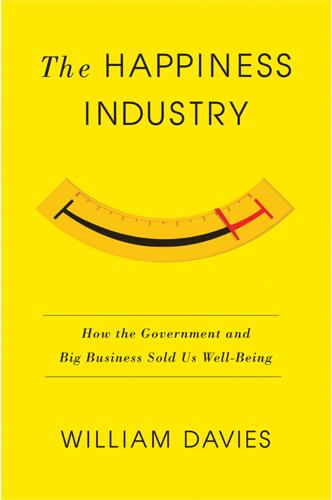
The Happiness Industry: How the Government and Big Business Sold Us Well-Being
by
William Davies
Published 11 May 2015
A hard science of subjective affect is available to us, which we would be crazy not to put to work via management, medicine, self-help, marketing and behaviour change policies. What if this psychological exuberance had, in fact, been with us for the past two hundred years? What if the current science of happiness is simply the latest iteration of an ongoing project which assumes the relationship between mind and world is amenable to mathematical scrutiny? That is one thing which this book aims to show. Repeatedly, from the time of the French Revolution to the present (and accelerating in the late nineteenth century), a particular scientific utopia has been sold: core questions of morality and politics will be solvable with an adequate science of human feelings.
…
The spirit of this agenda originates with the Enlightenment. But those who have exploited it best are those with an interest in social control, very often for private profit. That unfortunate contradiction accounts for the precise ways in which the happiness industry advances. In criticizing the science of happiness, I do not wish to denigrate the ethical value of happiness as such, less still to trivialize the pain of those who suffer from chronic unhappiness, or depression, and may understandably seek help in new techniques of behavioural or cognitive management. The target is the entangling of hope and joy within infrastructures of measurement, surveillance and government.
…
Arguably, we are already the product of various overlapping, sometimes contradictory efforts to observe our feelings and behaviours. Advertisers, human resource managers, governments, pharmaceutical companies have been watching, incentivizing, prodding, optimizing and pre-empting us psychologically since the late nineteenth century. Maybe what we need right now is not more or better science of happiness or behaviour, but less, or at least different. How likely is it that, in two hundred years’ time, historians will look back at the early twenty-first century and say, ‘Ah, yes, that was when the truth about human happiness was finally revealed’? And if it is unlikely, then why do we perpetuate this kind of talk, other than because it is useful to the powerful?

Delivering Happiness: A Path to Profits, Passion, and Purpose
by
Tony Hsieh
Published 6 Jun 2010
In the end, it turns out that we’re all taking different paths in pursuit of the same goal: happiness. In 2007, I started getting interested in learning more about the science of happiness. I learned that it was a relatively new research field known as positive psychology. Prior to 1998, almost all psychology was about trying to figure out how to get people who had something wrong with them more normal. But most psychologists and researchers never bothered to examine what would make normal people happier. I started reading more and more books and articles about the science of happiness including Happiness Hypothesis and Happier. Initially, it was just a side hobby and interest of mine that had nothing to do with Zappos.
…
It’s been interesting to look at the evolution of the Zappos brand promise over the years: 1999—Largest Selection of Shoes 2003—Customer Service 2005—Culture and Core Values as Our Platform 2007—Personal Emotional Connection 2009—Delivering Happiness From my perspective, it seemed to make sense to try to learn more about the science of happiness so that the knowledge could be applied to running our business. We could learn about some of the science behind how to make customers and employees happier. Today, we even offer a Science of Happiness class to our employees. As I studied the field more, I learned that one of the consistent findings from the research was that people are very bad at predicting what will actually bring them sustained happiness.
…
But research has shown that you can perform better in a marathon if you train yourself in ways that may initially seem to go against your gut instinct. Similarly, research in the science of happiness has shown that there are things that can make you happier that you may not realize will actually make you happier. And the reverse is true as well: There are things that you think will make you happy but actually won’t in the long run. I don’t claim to be an expert in the field of the science of happiness. I’ve just been reading books and articles about it because I find the topic really interesting. So I wanted to briefly share some of the frameworks of happiness that I personally found the most useful in helping shape my thinking, with the goal of whetting your appetite to do a little bit of reading yourself so that you can maximize your own personal level of happiness.

Geography of Bliss
by
Eric Weiner
Published 1 Jan 2008
It appeared on maps—located, ironically, at the confluence of the Tigris and Euphrates rivers, in what is now modern-day Iraq. European explorers prepared for expeditions in search of paradise by learning Aramaic, the language Jesus spoke. I set out on my journey, my search for paradise, speaking not Aramaic but another obscure language, the modern liturgy of bliss spoken by the new apostles of the emerging science of happiness. I brush up on terms like “positive affect” and “hedonic adaptation.” I carry no Bible, just a few Lonely Planet guides and a conviction that, as Henry Miller said, “One’s destination is never a place, but a new way of seeing things.” And so, on a typically steamy day in Miami (itself some people’s concept of paradise), I pack my bags and depart my home on what I know full well is a fool’s errand, every bit as foolish as the one I tried to pull off as a peripatetic five-year-old.
…
A new study has found that homework dulls the brain / enlarges it. We especially like studies that lend credibility to our own idiosyncrasies, as in, “A new study has found that people with messy desks are smarter” or “A new study has found that moderate daily flatulence improves longevity.” Yes, if this new science of happiness was to be taken seriously, it needed studies. But first, it needed a vocabulary, a serious jargon. The word “happiness” wouldn’t do. It sounded too frivolous, too easily understood. This was a problem. So the social scientists came up with a doozy: “subjective well-being.” Perfect. Not only was it multisyllabic and virtually impenetrable to laypeople, it also could be condensed into an even more obscure acronym: SWB.
…
Not only was it multisyllabic and virtually impenetrable to laypeople, it also could be condensed into an even more obscure acronym: SWB. To this day, if you want to find the latest scholarly research on happiness, you need to Google “SWB,” not “happiness.” Next came other pieces of the jargon puzzle. “Positive affect” is when something feels good; “negative affect” is—you guessed it—when something feels bad. Next, the new science of happiness needed data. Numbers. For what is science if not numbers, preferably large ones with lots of decimal points. And how do scientists get these numbers? They measure things. Oh, no. Major roadblock. How can you measure happiness? Happiness is a feeling, a mood, an outlook on life. Happiness can’t be measured.

Free Money for All: A Basic Income Guarantee Solution for the Twenty-First Century
by
Mark Walker
Published 29 Nov 2015
Scientists have found that these numbers correlate to a high degree, suggesting that surveys that rely on self-reports of happiness are measuring what they intend to measure. 24 As mentioned, this is not the place to provide a defense of the science of happiness. True, if there are good reasons to doubt this science then there is reason to doubt the idea that BIG will promote aggregate utility. But skepticism about the science of happiness works both ways. Some may say that there is no reason to think that BIG will increase happiness, and so this undermines one reason to endorse BIG. Of course, this also undermines a reason to resist BIG: the idea that redistribution will make people unhappy.
…
Of course, this also undermines a reason to resist BIG: the idea that redistribution will make people unhappy. That is, an opponent of the argument cannot consistently say, “there is no reason to suppose BIG will increase happiness, because the science of happiness is illegitimate,” and “we should not adopt BIG because higher taxes will make people unhappy.” The problem for this line of objection, in other words, is that if there are doubts about measuring happiness, then this cuts equally well against the idea that increased taxes affect the happiness of the rich. Happiness and Income: The Easterlin Paradox A less extreme form of skepticism agrees that we can measure happiness, but suggests that the empirical data shows that money does not buy happiness.
…
Lepper, “A Measure of Subjective Happiness: Preliminary Reliability and Construct Validation,” Social Indicators Research 46, 2 (1999): 137–155; Deborah Mattel and Charles Schafer, “An Investigation of Validity of the Subjective Happiness Scale 1,” Psychological Reports 94, 1 (2004): 288–290; E. Diener, “Subjective Well-Being: The Science of Happiness and a Proposal for a National Index,” American Psychologist 55, 1 (2000): 34. Lyubomirsky and Lepper, “A Measure of Subjective Happiness.” R. A. Easterlin, Does Economic Growth Improve the Human Lot? Nations and Households in Economic Growth: Essays in Honour of Moses Abramovitz. M. Abramovitz, PA David and MW Reder (New York; London: Academic Press, 1974).
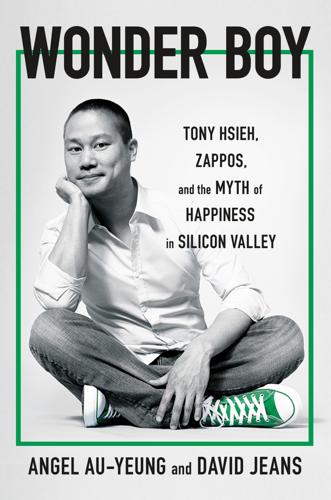
Wonder Boy: Tony Hsieh, Zappos, and the Myth of Happiness in Silicon Valley
by
Angel Au-Yeung
and
David Jeans
Published 25 Apr 2023
Through a best-selling autobiography, Delivering Happiness: A Path to Profits, Passion, and Purpose, Tony devised a revolutionary way to run corporations—by focusing on your employees and ensuring they are happy, you’ll have happy customers, and then your profits will soar. The book described his own search to understand how the science of happiness could be applied to improving the lives of employees, and how, by focusing on other people’s happiness, you might just increase your own. A New York Times bestseller, it propelled Tony to the global speaking circuit. He toured the late-night TV shows espousing a template for achieving happiness, shared the stage with Bill Clinton, and befriended celebrities like Ashton Kutcher, Richard Branson, and the singer Jewel.
…
But Tony had been searching for something more than good business mantras and lessons. Something deeper, perhaps closer to the meaning of life, or inner peace. Something that would give everything he did purpose. Something he had been searching for since he was a boy. What he found was the science of happiness. Psychological treatment for mental health had largely focused on healing people with mental health issues by abating anxiety, depression, and other symptoms. But Tony was intrigued by an emerging concept called positive psychology, with the stated goal of reinforcing sustained happiness. Among his required readings was the 2006 book The Happiness Hypothesis: Finding Modern Truth in Ancient Wisdom by social scientist Jonathan Haidt, who drew on ancient teachings from India, China, and the Mediterranean and reinterpreted readings from the Bible, the Koran, and Confucius to establish a series of philosophies and questions that could lead one to sustained happiness.
…
When word got out that Zappos was looking for new investors, Jeff Bezos came calling again. Tony flew to Seattle in April 2009 and met with Bezos at Amazon’s headquarters. Tony stuck to his typical presentation notes, focusing on Zappos’s corporate culture and how that translated to good customer service and therefore sales. As he concluded the presentation, Tony turned to the science of happiness and its role at Zappos. Jeff interrupted. “Did you know that people are very bad at predicting what will make them happy?” he said. Tony clicked to the next slide, and the very words Jeff had just uttered appeared on the screen. “Yes,” Tony said, “but apparently you are very good at predicting PowerPoint slides.”
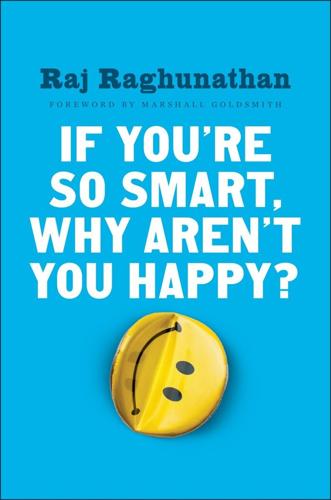
If You're So Smart, Why Aren't You Happy?
by
Raj Raghunathan
Published 25 Apr 2016
over 80 percent in 2014: For the data from 2014, see p. 44 of findings from The American Freshman Surveys, accessed from www.heri.ucla.edu/monographs/TheAmericanFreshman2014-Expanded.pdf. The statistic from the 1970s is from Dacher Keltner’s introductory lecture for the course “The Science of Happiness” on EDx. The course can be accessed at www.edx.org/course/science-happiness-uc-berkeleyx-gg101x-1 or by searching for “The science of happiness” on search engines such as Google. See also Luxury Fever by Robert Frank for many examples of how the need for superiority is stoked in the pursuit of materialistic yardsticks of success. Materialism scale: M. L. Richins and S.
…
But thanks to the sheer weight of emerging scientific evidence, it’s much easier now to see how and why the determinants of happiness lead to other benefits as well. In other words, adoption of happiness “habits” has been slow until now because we had little scientific evidence of its “win-win-win-win.” With the emergence of the new “science of happiness”—positive psychology—however, this is all set to change. The second part of my answer has to do with perhaps the most important megatrend that has characterized the evolution of human beings in the past few decades. Perhaps due to the convergence of a number of factors—including unprecedented levels of peace, incredible technological advancements, and increasing access to information—the average person living in developed nations enjoys a far better standard of living than that which even the kings and queens of yore enjoyed.
…
Gilbert, Stumbling on Happiness (Toronto: Vintage Canada, 2009); J. Haidt, The Happiness Hypothesis: Finding Modern Truth in Ancient Wisdom (New York: Basic Books, 2006); Lyubomirsky, The How of Happiness: A Scientific Approach to Getting the Life You Want (New York: Penguin, 2008). See also E. Diener, “Subjective Well-being: The Science of Happiness and a Proposal for a National Index,” American Psychological Association 55(1) (2000): 34; and E. Diener, and S. Oishi, “The Desirability of Happiness Across Cultures,” unpublished manuscript, University of Illinois, Urbana-Champaign, 2006. even many economists: See R. Layard, Happiness: Lessons from a New Science (London: Allen Lane, 2005).
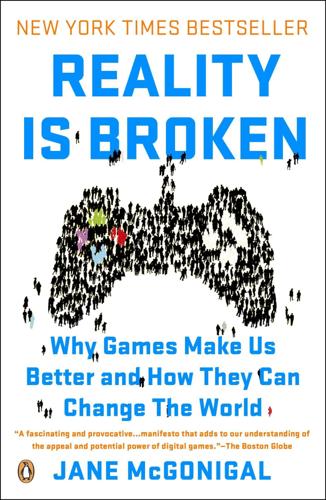
Reality Is Broken: Why Games Make Us Better and How They Can Change the World
by
Jane McGonigal
Published 20 Jan 2011
When we know what it really means to play a good game, we can stop reminding each other: This isn’t a game. We can start actively encouraging people instead: This could be a game. CHAPTER TWO The Rise of the Happiness Engineers I’m not the first person to notice that reality is broken compared with games, especially when it comes to giving us good, hard work. In fact, the science of happiness was first born thirty-five years ago, when an American psychologist by the name of Mihály Csíkszentmihályi observed the very same thing. In 1975, Csíkszentmihályi published a groundbreaking scientific study called Beyond Boredom and Anxiety. The focus of the study was a specific kind of happiness that Csíkszentmihályi named flow: “the satisfying, exhilarating feeling of creative accomplishment and heightened functioning.”1 He spent seven years researching this kind of intense, joyous engagement: when and where do we experience it most, and how can we create more of it?
…
As one journalist put it, the Microsoft game-testing lab “looks more like a psychological research institute than a game studio.”6 This is no accident. Game designers and developers are actively transforming what once was an intuitive art of optimizing human experience into an applied science. And as a result, they are becoming the most talented and powerful happiness engineers on the planet. Today, these two historical trends—the science of happiness and the emotional evolution of the game industry—are intersecting. Thanks to positive psychologists, we know better than ever what kinds of experiences and activities really make us happy. And thanks to game developers, we have more and more powerful, and increasingly mobile, systems for providing intense, optimistic engagement and the emotional rewards we crave most.
…
Flow, as positive psychologists have documented, is only one part of the overall happiness picture. It was the first kind of happiness these psychologists studied, but the science has progressed significantly since then. As Corey Lee M. Keyes, a psychology professor at Emory University, explains, “Flow is considered part of the science of happiness but not all.... It is more of a temporal state than a trait or condition of human functioning. While there are studies on how to prolong it, flow is not seen as something that people can live within all the time.”11 Flow is exhilarating in the moment. It makes us feel energized. A major flow experience can improve our mood for hours, or even days, afterward.
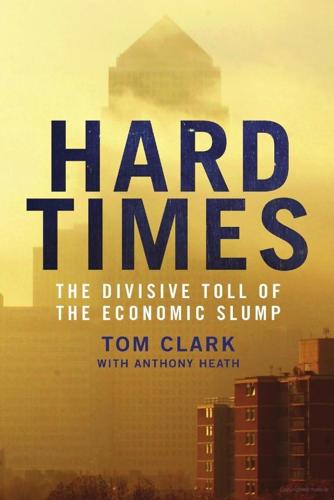
Hard Times: The Divisive Toll of the Economic Slump
by
Tom Clark
and
Anthony Heath
Published 23 Jun 2014
The misery of the jobless was undoubtedly the chief societal poison during the Depression; but in Chapter 4 we explore the low pay, casual contracts and unpredictable shifts which combined during the recent recession to bring hard times to much of the working population too – and in a manner that is dragging on into the recovery. The next stage of our inquiry moves out of the jobs market and into the communities, the homes and the hearts where the human consequences unfolded. Chapter 5 looks at family life and individual well-being, drawing on the new science of happiness and the oldest statistical indicator of its absence – the suicide rate. Chapter 6 then steps out of the home and onto the streets, to gauge the strength of social networks. Throughout, we ask whether hard times are re-inforcing pre-existing divisions by blighting the vulnerable more. With the American recovery well under way and the British economy finally picking up, too, we consider whether we might soon be able to forget a passing storm.
…
From the 1990s onward, the ties of community – or, in the jargon, ‘social capital’ – have been shown to bear on everything from the safety of the streets to the life expectancy of the people who live along them.4 The idea that social networks have value is commonsensical at one level; but the formalisation of this insight within sociology has had results just as radical as those of the new science of happiness. Pubs, Alcoholics Anonymous branches and everything in between are these days tallied as a measure of how tight-knit a community is. Just as the value of this traditional asset of American society was coming into view, however, Robert Putnam's Bowling Alone charted the decline of countless forms of civic association in the later decades of the twentieth century, and forced a country to ask whether it was squandering this great inheritance.
…
For the rest – all those Americans, and latterly Britons as well, whose pay packets did not share in the proceeds of growth – there was a burgeoning range of options for credit. Anglo-American societies did not always seem healthy: Robert Putnam's Bowling Alone recorded the withering of American community life, and the new science of happiness suggested that the rising average wealth of society was doing little to reduce the misery quotient. But the political mainstream regarded these insights as quirky caveats attached to more general principles about the unique efficacy of running things on individualistic lines. The great inflation of the 1970s had, after all, exposed Foot's old order as bankrupt, and so – like the Cold War before it, and the British Empire before that – the New Right's ‘post-post-war’ settlement had slowly developed an air of permanence by the time the slump arrived.
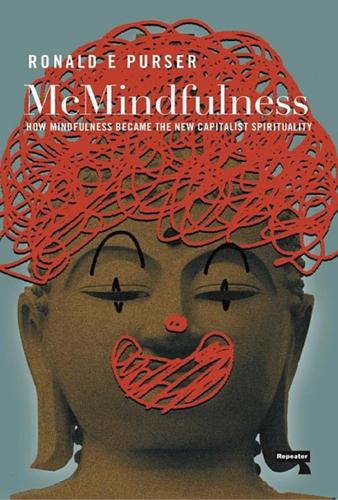
McMindfulness: How Mindfulness Became the New Capitalist Spirituality
by
Ronald Purser
Published 8 Jul 2019
The program is marketed to Google engineers as instrumental to their career success — by engaging in mindfulness practice, managing emotions generates surplus economic value, equivalent to the acquisition of capital. The mood economy also demands an affective resilience, the ability to bounce back from setbacks to stay productive in a precarious economic context. Like positive psychology, the mindfulness movement has merged with the “science of happiness.” Once packaged in this way, it can be sold as a technique for personal life-hacking optimization, disembedding individuals from social worlds. A Cruel Optimism All the promises of mindfulness resonate with what Lauren Berlant calls “cruel optimism,” a defining neoliberal characteristic.28 It is cruel in that one makes affective investments in what amount to fantasies.
…
The cultural currency of neuroscience made the WEF crowd especially receptive to Davidson’s message. Their increasing interest in mental health and wellbeing is logical — as we have seen, mindfulness is used to alleviate employee disengagement. And since wellbeing is an economic factor of production, the emerging science of happiness seeks to explain how to bolster resilience. However, it functions via surveillance. Neuroscience offers more sophisticated technologies for measuring and quantifying internal states, and positive moods and feelings can be reproduced through mindfulness training. Davidson’s research into the neural mechanisms behind such states as compassion, empathy, resilience, and gratitude thus has tremendous neoliberal value.
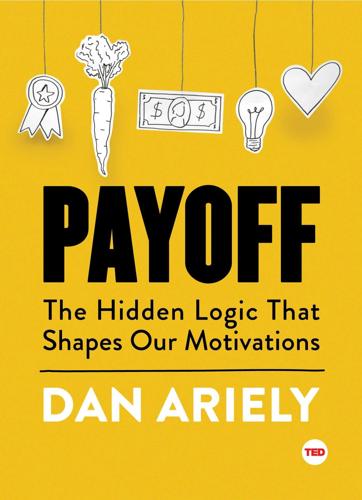
Payoff: The Hidden Logic That Shapes Our Motivations
by
Dan Ariely
Published 15 Nov 2016
Dan Pink The puzzle of motivation Career analyst Dan Pink examines the puzzle of motivation, starting with a fact that social scientists know but most managers don’t: Traditional rewards aren’t always as effective as we think. Listen for illuminating stories—and maybe, a way forward. Dan Gilbert The surprising science of happiness Dan Gilbert, author of Stumbling on Happiness, challenges the idea that we’ll be miserable if we don’t get what we want. Our “psychological immune system” lets us feel truly happy even when things don’t go as planned. ALSO FROM TED BOOKS When Strangers Meet by Kio Stark When Strangers Meet reveals the transformative possibility of talking to people you don’t know—how these beautiful interruptions in daily life can change you and the world we share.
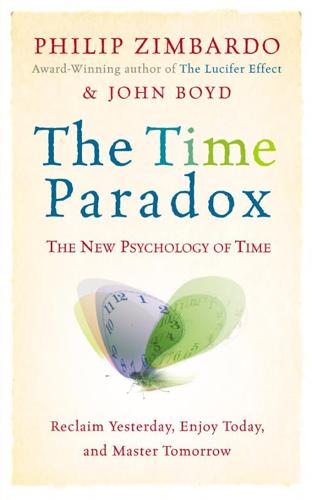
Time Paradox
by
Philip G. Zimbardo
and
John Boyd
Published 1 Jan 2008
The surprisingly wrong answer is apparently so sensible and so widely believed that only a protracted thrashing has any hope of expunging it from our conventional wisdom. So before the grudge match begins, let me share with you my plan of attack. • In Part II, “Subjectivity,” I will tell you about the science of happiness. We all steer ourselves toward the futures that we think will make us happy, but what does that word really mean? And how can we ever hope to achieve solid, scientific answers to questions about something as gossamer as a feeling? • We use our eyes to look into space and our imaginations to look into time.
…
By the same logic, the careful collection of a large number of experiential reports allows the imperfections of one to cancel out the imperfections of another. No individual’s report may be taken as an unimpeachable and perfectly calibrated index of his experience—not yours, not mine—but we can be confident that if we ask enough people the same question, the average answer will be a roughly accurate index of the average experience. The science of happiness requires that we play the odds, and thus the information it provides us is always at some risk of being wrong. But if you want to bet against it, then flip that coin one more time, get out your wallet, and tell Paul to make mine a Guinness. Onward One of the most annoying songs in the often annoying history of popular music begins with this line: “Feelings, nothing more than feelings.”
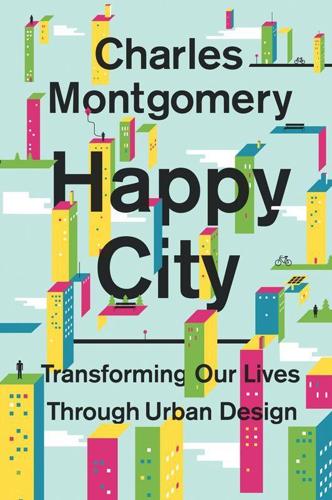
Happy City: Transforming Our Lives Through Urban Design
by
Charles Montgomery
Published 12 Nov 2013
You would have to tabulate the psychological effects of driving in traffic, or catching the eye of a stranger on the sidewalk, or pausing in a pocket park, or of feeling crowded or lonely, or of the simple feeling that the city you live in is a good or bad place. You would have to go beyond politics and philosophy to find a map of the ingredients of happiness, if it exists at all. * * * The cheers in that Vancouver ballroom echoed in my ears for the five years I spent charting the intersection of urban design and the so-called science of happiness. The quest led me to some of the world’s greatest and most miserable streets. It led me through the labyrinths of neuroscience and behavioral economics. I found clues in paving stones, on rail lines, and on roller coasters, in architecture, in the stories of strangers who shared their lives with me, and in my own urban experiments.
…
Now is a great time to take another stab at defining it, because during the decades that the suburban project accelerated, a network of psychologists, brain scientists, and economists devoted themselves to the study of the subject that intrigued the Greeks, stumped the Enlightenment scholars, and provided fodder for those who design cities to this day. A Science of Happiness In the early 1990s the University of Wisconsin psychologist Richard Davidson attempted to isolate the sources of positive and negative feelings in the human brain. Doctors have long noticed that people with damage to the front left side of their brain (the left prefrontal cortex) sometimes, and quite suddenly, lose their sense of enjoyment in life.
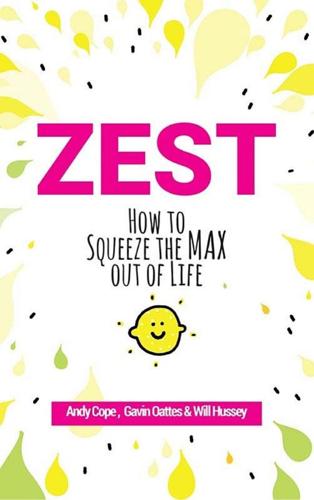
Zest: How to Squeeze the Max Out of Life
by
Andy Cope
,
Gavin Oattes
and
Will Hussey
Published 19 Jul 2019
Rather than studying folk with ailments and inventing disorders to label them and remedies to cure them, wouldn’t it be ace to a study people with zestful vigour and smiley faces who, to this point in history, have been shunned by the psychology profession on the grounds of ‘not being ill’? So I decided to seek out the zestful few rather than the troubled many. For proper academics my thesis is available at www.artofbrilliance.co.uk. Yes, all 130,000 words of it. The science of happy people. Go whack-a-mole it if you want. For everyone else, here’s the headline news version. If, this week, you kept a diary of your emotions and we plotted the results on a graph, you’d have an upper and lower level. So, in a normal week, you will live your life between these two limits of upper level ‘feel good’ and lower level ‘feel lousy’.
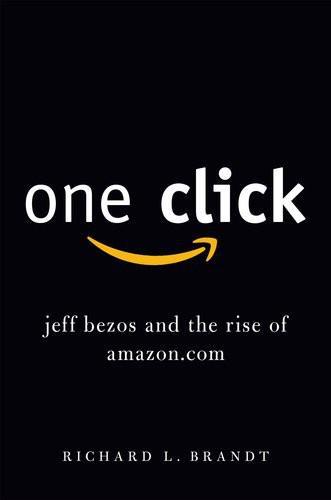
One Click: Jeff Bezos and the Rise of Amazon.com
by
Richard L. Brandt
Published 27 Oct 2011
Hsieh still didn’t want to sell. Zappos was now profitable, but the economy was in a recession, and Bezos was offering an astounding amount of money, although in the form of stock rather than cash. In April 2009, Hsieh flew to Seattle to talk about the company and its culture, including Hsieh’s philosophy on “the science of happiness—and how we try to use it to serve our customers and employees better.” Bezos suddenly piped up with the question, “Did you know that people are very bad at predicting what will make them happy?” That exact question was the next slide in Hsieh’s PowerPoint presentation. From that point on, Hsieh relaxed, feeling that Bezos did understand his dedication to his company’s culture: both men were more dedicated to customers than to short-term profits.
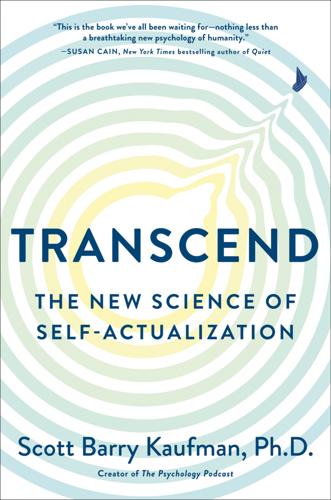
Transcend: The New Science of Self-Actualization
by
Scott Barry Kaufman
Published 6 Apr 2020
Healthy personality: An approach from the viewpoint of humanistic psychology. New York: Macmillan; Kaufman, S. B. (2018). Do you have a healthy personality? Scientific American Blogs. Retrieved from https://blogs.scientificamerican.com/beautiful-minds/do-you-have-a-healthy-personality. 8. Compton, W. C., & Hoffman, E. L. (2019). Positive psychology: The science of happiness and flourishing. New York: Sage Publications; Basic Books; Lopez, S. J., Pedrotti, J. T., & Snyder, C. R. (2018). Positive psychology: The scientific and practical explorations of human strengths. New York: Sage Publications; Seligman, M. E. P. (2011). Flourish: A visionary new understanding of happiness and well-being.
…
O. (2018). Happy together: Using the science of positive psychology to build love that lasts. New York: TarcherPerigee. 26. Diener, E., & Seligman, M. E. P. (2002). Very happy people. Psychological Science, 13(1), 81–84. 27. Compton, W. C., & Hoffman, E. (2019). Positive psychology: The science of happiness and flourishing (3rd ed.). Thousand Oaks, CA: Sage Publications. 28. Fredrickson, B.L. (2013). Love 2.0: Finding happiness and health in moments of connection. New York: Plume. 29. Hasson, U., Ghazanfar, A. A., Galantucci, B., Garrod, S., Keysers, C. (2012). Brain-to-brain coupling: A mechanism for creating and sharing a social world.

Effective Programming: More Than Writing Code
by
Jeff Atwood
Published 3 Jul 2012
Money is an opportunity for happiness, but it is an opportunity that people routinely squander because the things they think will make them happy often don’t. You may also recognize some of the authors on this paper, in particular Dan Gilbert, who also wrote the excellent book Stumbling on Happiness that touched on many of the same themes. What is, then, the science of happiness? I’ll summarize the basic eight points as best I can, but read the actual paper to obtain the citations and details on the underlying studies underpinning each of these principles. 1. Buy experiences instead of things Things get old. Things become ordinary. Things stay the same. Things wear out.
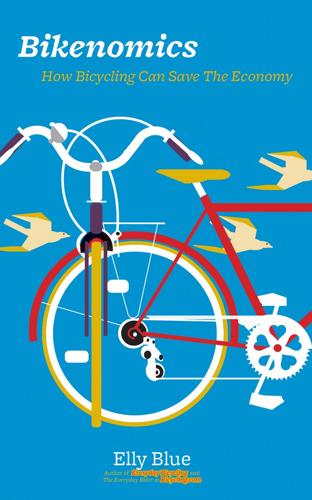
Bikenomics: How Bicycling Can Save the Economy (Bicycle)
by
Elly Blue
Published 29 Nov 2014
Besides making us unhappy, stress is an aggravating factor in just about every mental and physical disease there is, particularly the chronic ones that we are struggling with in the U.S. today. The vast majority of us regularly feel unduly stressed out,62 particularly those who live in poverty. In economics, happiness is conveniently measured in units. We expect that money creates more happiness units. A standard finding in the science of happiness, is that this is true—for those living in poverty. Once your income rises above subsistence level, earning yet more money still makes you happier, but in much smaller increments and not nearly as much as having strong family and social relationships. And the diminishing returns continue—once you move beyond a middle class income they nearly dry up entirely.
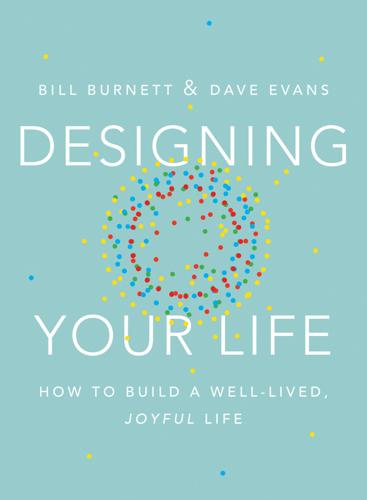
Designing Your Life: How to Build a Well-Lived, Joyful Life
by
Bill Burnett
and
Dave Evans
Published 12 Sep 2016
Dan Goleman is the author of Emotional Intelligence (New York: Bantam, 1995) and the follow-up book Social Intelligence: The New Science of Human Relationships (New York: Bantam, 2006) from which we draw the notion of the “wisdom of the emotions.” For an informative and interesting summary of these ideas go to Dan’s Social Intelligence Talks at Google at https://www.youtube.com/watch?v=-hoo_dIOP8k. 3. For more on Dan Gilbert’s ideas on “synthesizing happiness” watch his TED Talk, “The Surprising Science of Happiness,” http://www.ted.com/talks/dan_gilbert_asks_why_are_we_happy and read Stumbling on Happiness (New York: Knopf, 2006). 4. For more on Barry Schwartz’s ideas on choice and choosing watch his TED Talk, “The Paradox of Choice?,” https://www.ted.com/talks/barry_schwartz_on_the_paradox_of_choice?
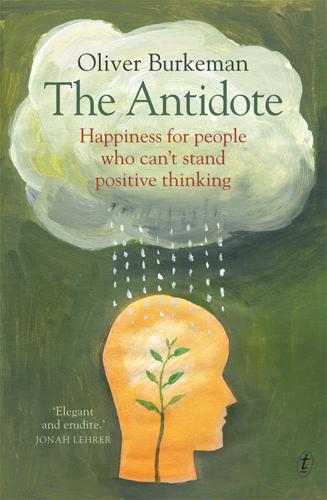
The Antidote: Happiness for People Who Can't Stand Positive Thinking
by
Oliver Burkeman
Published 1 Jul 2012
It is only months later, back at my home in New York, reading the headlines over morning coffee, that I learn the news that the largest church in the United States constructed entirely from glass has filed for bankruptcy, a word Dr Schuller had apparently neglected to eliminate from his vocabulary. For a civilisation so fixated on achieving happiness, we seem remarkably incompetent at the task. One of the best-known general findings of the ‘science of happiness’ has been the discovery that the countless advantages of modern life have done so little to lift our collective mood. The awkward truth seems to be that increased economic growth does not necessarily make for happier societies, just as increased personal income, above a certain basic level, doesn’t make for happier people.
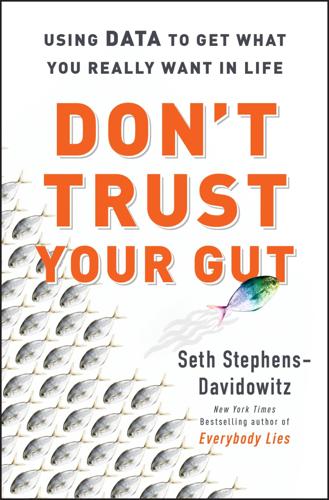
Don't Trust Your Gut: Using Data to Get What You Really Want in LIfe
by
Seth Stephens-Davidowitz
Published 9 May 2022
Mappiness’s sample of sexual participants instead consists of people having sex so underwhelming that they are willing to stop in the middle, pick up their phones, and answer a series of survey questions. And even these people—sex’s most indifferent partakers—were happier than any group of people trying any other activity. Bad sex literally beats anything else human beings can think to do. Thus, lesson number one of the data science of happiness: have more sex, people!!! Even, it seems, if you’re looking at a phone during it. After learning of this data-driven lesson, I got excited and told my girlfriend that we need to show this finding to my good friend. My friend’s girlfriend has been complaining recently that he never wants to have sex.
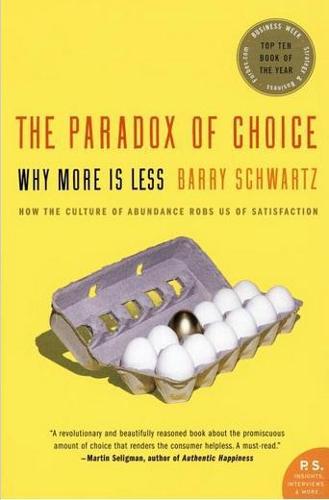
The Paradox of Choice: Why More Is Less
by
Barry Schwartz
Published 1 Jan 2004
Larson, and S. Griffin, “The Satisfaction with Life Scale,” Journal of Personality Assessment, 1985, 49, 71–75. And one of the things A central figure in the study of happiness is psychologist Ed Diener. For a sample of Diener’s recent work on the topic, see E. Diener, “Subjective Well-Being: The Science of Happiness and a Proposal for a National Index,” American Psychologist, 2000, 55, 34–43; E. Diener, M. Diener, and C. Diener, “Factors Predicting the Subjective Well-Being of Nations,” Journal of Personality and Social Psychology, 1995, 69, 851–864; E. Diener and E.M. Suh (eds.), Subjective Well-Being Across Cultures (Cambridge, MA: MIT Press, 2001); and E.
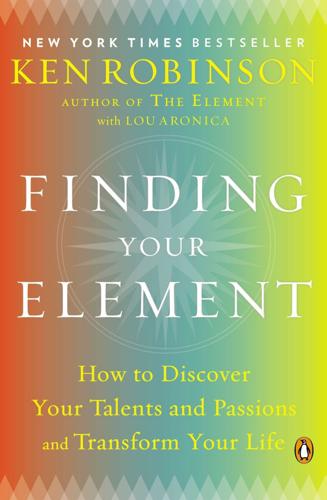
Finding Your Element: How to Discover Your Talents and Passions and Transform Your Life
by
Ken Robinson
and
Lou Aronica
Published 14 Jul 2013
The Joseph Campbell Foundation home page, accessed November 17, 2011, http://www.jcf.org/new/index.php?categoryid=31. Thérèse, India’s Summer (Stamford, CT: Fiction Studio, 2012). Chapter Five: What Makes You Happy? Dan Baker and Cameron Stauth, What Happy People Know: How the New Science of Happiness Can Change Your Life for the Better (Emmaus, PA: Rodale, 2003). David Rock, “New Study Shows Humans Are on Autopilot Nearly Half the Time,” Psychology Today, November 14, 2011, accessed December 20, 2011, http://www.psychologytoday.com/blog/your-brain-work/201011/new-study-shows-humans-are-autopilot-nearly-half-the-time.
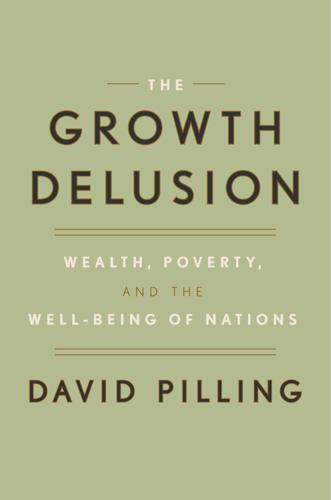
The Growth Delusion: Wealth, Poverty, and the Well-Being of Nations
by
David Pilling
Published 30 Jan 2018
In the survey, which covers a random sample of more than one million respondents, people are asked, “On the whole, are you i) very satisfied, ii) fairly satisfied, iii) not very satisfied or iv) not at all satisfied with the life you lead?” The paper found that answers to that question were a “robust predictor of election results” and a better guide to voting intention than any other measure including GDP.8 To Bill Clinton, Layard says, “It’s happiness, stupid.” In the new “science” of happiness there are several ways of measuring what researchers call “subjective well-being.” One is to rely on fast-advancing neuroscience. Richard Davidson at the University of Wisconsin has developed ways to measure people’s mood by attaching electrodes to the scalp. When people are shown an amusing video clip, the left side of their brain—associated with happiness—becomes more active.
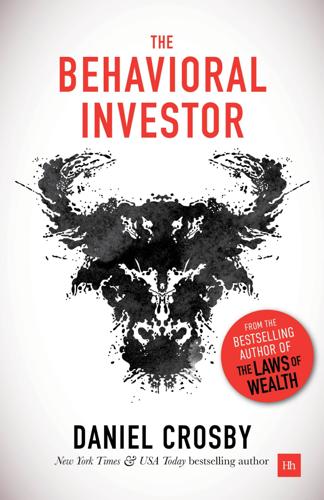
The Behavioral Investor
by
Daniel Crosby
Published 15 Feb 2018
Notes 27 Nathaniel Branden, The Psychology of Self-Esteem: A Revolutionary Approach to Self-Understanding that Launched a New Era in Modern Psychology (Jossey-Bass, 2001). 28 Daniel Crosby, You’re Not That Great (Word Association Publishers, 2012). 29 Dan Gilbert, ‘The surprising science of happiness’ TED Talk (February 2004). 30 Ibid. 31 Lee Ross and Craig Anderson, ‘Shortcomings in the attribution process: On the origins and maintenance of erroneous social assessments,’ in Daniel Kahneman, Paul Slovic and Amos Tversky (eds.), Judgment Under Uncertainty: Heuristics and Biases (Cambridge University Press, 1982), pp. 129–152. 32 2014 NTSB US Civil Aviation Acccident Statistics. 33 Gerd Gigerenzer, Risk Savvy: How to Make Good Decisions (Penguin, 2015). 34 Justin Kruger and David Dunning, ‘Unskilled and unaware of it: How difficulties in recognizing one’s own incompetence lead to inflated self-assessments,’ Journal of Personality and Social Psychology 77:6 (1999), pp. 1121–34.
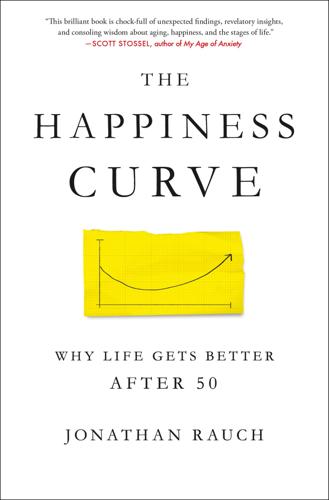
The Happiness Curve: Why Life Gets Better After 50
by
Jonathan Rauch
Published 30 Apr 2018
—Ashton Applewhite, author of This Chair Rocks: A Manifesto Against Ageism “Rauch contrasts the happiness people experience in midlife with the happiness they expect, making an important scientific finding come to life with urgency and passion. Beautifully written and a must-read for those who are interested in the science of happiness and for anyone approaching the age of forty.” —Martin Binder, professor of economics, Bard College Berlin About the Author JONATHAN RAUCH, a senior fellow at the Brookings Institution in Washington, is the author of several books and many articles on public policy, culture, and government.
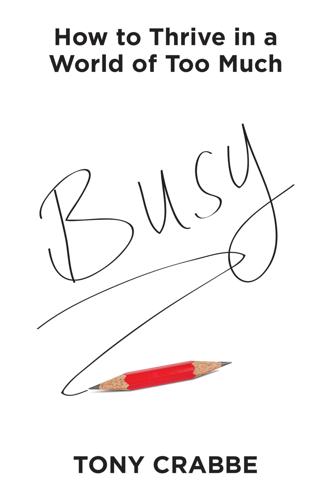
Busy
by
Tony Crabbe
Published 7 Jul 2015
Mihaly Csikszentmihalyi, Flow: The Classic Work on How to Achieve Happiness (London: Rider/Random House, 1992). 6. Paul A. O’Keefe and Lisa Linnenbrink-Garcia, “The Role of Interest in Optimizing Performance and Self-regulation,” Journal of Experimental Social Psychology 53 (July 2014): 70–8. 7. Daniel Gilbert, “The Surprising Science of Happiness,” (TED talk, February 2004), http://www.ted.com/talks/dan_gilbert_asks_why_are_we_happy. 8. George Leonard, Mastery: The Key to Success and Long-Term Fulfilment (New York: Plume, 1991). 9. Jane E. Barker, Andrei D. Semenov, Laura Michaelson, Lindsay S. Provan, Hannah R. Snyder, and Yuko Munakata, “Less-Structured Time in Children’s Daily Lives Predicts Self-Directed Executive Functioning,” Frontiers in Psychology, June 17, 2014. 10.
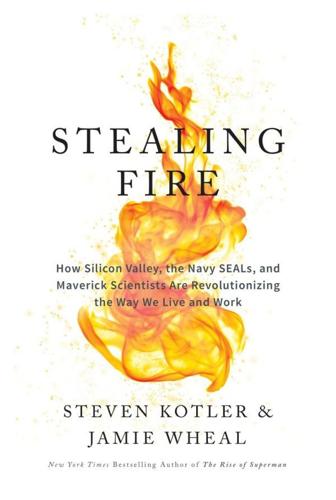
Stealing Fire: How Silicon Valley, the Navy SEALs, and Maverick Scientists Are Revolutionizing the Way We Live and Work
by
Steven Kotler
and
Jamie Wheal
Published 21 Feb 2017
Since rolling out their program, Aetna estimates: Joe Pinsker, “Corporations’ Newest Productivity Hack: Meditation,” Atlantic, March 10, 2015. 41. the meditation and mindfulness industry grew to nearly $1 billion: Jan Wieczner, “Meditation Has Become a Billion-Dollar Business,” Fortune, March 12, 2016. 42. At Harvard, Professor Tal Ben Shahar’s: Craig Lambert, ’The Science of Happiness,” Harvard Magazine, January–February 2007. 43. By college, many Millennials have reached: Pfaffenberger, ed., The Postconventional Personality, p. 60. 44. researchers began finding the practice did everything: N. P. Gothe and E. McAuley, “Yoga and Cognition: A Meta-Analysis of Chronic and Acute Effects,” Psychosomatic Medicine 77, no. 7 (September 2015): 784–97; N.
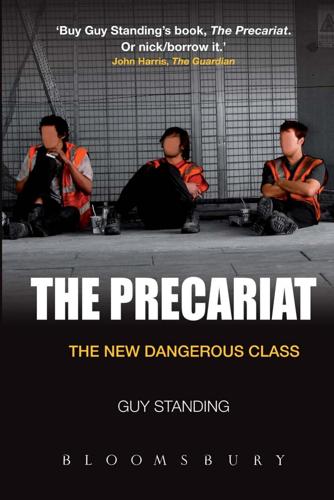
The Precariat: The New Dangerous Class
by
Guy Standing
Published 27 Feb 2011
Making the precariat ‘happy’ Meanwhile, the paternalists who have dominated social policy since the 1990s have refined a utilitarian mentality built around the desire to make people A POLITICS OF INFERNO 141 ‘happy’, to the extent that provision of happiness has become quasi-religious and dignified by being called ‘the science of happiness’. In some countries, including France and the United Kingdom, official statistics are being collected to measure people’s happiness. Let us suppose we have a society in which politicians and their advisers want to make people ‘happy’. The utilitarian rationalisation for inducing labour has grown in sophistication.
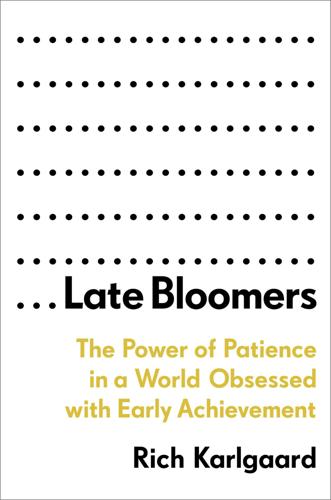
Late Bloomers: The Power of Patience in a World Obsessed With Early Achievement
by
Rich Karlgaard
Published 15 Apr 2019
Sheth, Firms of Endearment: How World-Class Companies Profit from Passion and Purpose (Upper Saddle River, NJ: Wharton, 2007). “achieve significantly higher levels”: Kim Cameron et al., “Effects of Positive Practices on Organizational Effectiveness,” Journal of Applied Behavioral Science 47, no. 3 (2011): 266–308. “compassion is good for”: Emma Seppälä, The Happiness Track: How to Apply the Science of Happiness to Accelerate Your Success (New York: HarperCollins, 2017). “but then the lid came off”: This Emotional Life: My Transformation from High School Dropout to Surgeon (documentary), PBS, aired January 4, 2011. Rick Ankiel, by contrast, had a charmed life: On the story of the St. Louis Cardinals pitcher and his sudden loss of directional control, I especially liked the late Charles Krauthammer’s “The Return of the Natural,” Washington Post, August 17, 2007, not least because Krauthammer tragically lost his own youthful prowess when he broke his neck in a diving accident, resulting in quadriplegia.
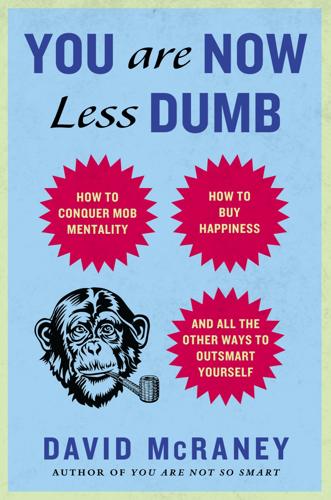
You Are Now Less Dumb: How to Conquer Mob Mentality, How to Buy Happiness, and All the Other Ways to Outsmart Yourself
by
David McRaney
Published 29 Jul 2013
Gertner, Jon. “The Futile Pursuit of Happiness.” The New York Times, Sept. 7, 2003. Web: Aug. 2012, www.nytimes .com/2003/09/07/magazine/the-futile-pursuit-of-happiness .html?pagewanted=all&src=pm. Gilbert, Daniel. Stumbling on Happiness. New York: Knopf, 2006. ———. “The Surprising Science of Happiness.” TED Talks. Sept. 2006. Web: Aug. 2012, www.ted.com/talks/dan_gilbert_asks_why_are_we_happy.html. Gilbert, Daniel T., and Jane E. J. Ebert. “Decisions and Revisions: The Affective Forecasting of Changeable Outcomes.” Journal of Personality and Social Psychology 82, no. 4 (2002): 503–14.

Britain Etc
by
Mark Easton
Published 1 Mar 2012
Kahneman was aware that the pursuit of happiness, although enshrined in America’s constitution, was too easily dismissed as a nebulous and naïve ambition by hard-nosed policy advisors in Washington. Reducing unhappiness, however, was accepted as a legitimate and noble aim. In Britain, the new utilitarians were beginning to grow in confidence: the government was pledged to evidence-based policy and they hoped the science of happiness could become a driving force in determining the political direction of travel. Within Number Ten itself, Tony Blair’s strategy team included enthusiastic advocates of the new utilitarian cause. Geoff Mulgan and David Halpern were quietly encouraging the Prime Minister towards the politics of well-being, but the Labour leader was never totally convinced.

Break Through: Why We Can't Leave Saving the Planet to Environmentalists
by
Michael Shellenberger
and
Ted Nordhaus
Published 10 Mar 2009
Drive across town to the local mega-church service and you’ll likely find an energetic and vibrant righteousness that doesn’t get to the dull work of door knocking and phone banking until well after the faithful have sung songs and felt the warming love of Jesus in their hearts. 8. In order to create a politics that people want to be a part of, we need to take a step back and understand at a more fundamental level what makes people happy and fulfilled. The last two decades has seen an explosion of social science research into the new sciences of happiness and an attendant series of very fine books summarizing this research.28 One of the most surprising and relevant of these findings is that we are often at our happiest when we are in flow—that is, in the state of losing oneself in activities that require a level of concentration that is intense but not so intense as to become frustration.
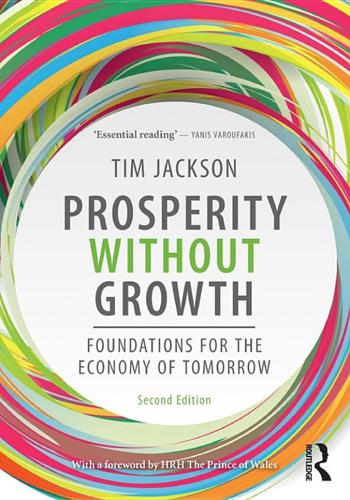
Prosperity Without Growth: Foundations for the Economy of Tomorrow
by
Tim Jackson
Published 8 Dec 2016
Those are happiest, he suggests, who show compassion for others and exercise care for them. Perhaps surprisingly, the claim has some support from modern scientific research. ‘The very act of concern for others’ wellbeing creates a greater sense of wellbeing within oneself’, concludes neuropsychologist Richard Davidson.6 The recent surge of interest in the science of happiness resonates deeply with the focus of this book. This doesn’t mean of course that happiness is the same thing as prosperity. But to the extent that we tend to be happy when things go well and unhappy when they don’t, there is clearly some connection between the two.7 Using both cognitive and neuropsychology, this emerging science has done much to unravel the complex nature of human wellbeing.
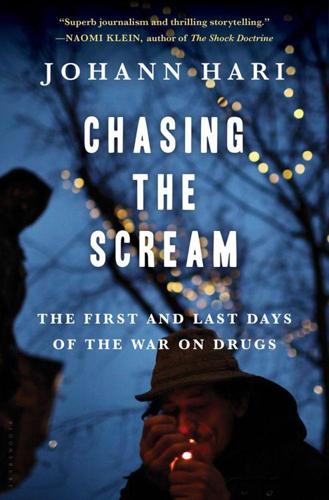
Chasing the Scream: The First and Last Days of the War on Drugs
by
Johann Hari
Published 20 Jan 2015
Drug Addicts Are Human Beings. Washington, D.C.: Shaw Publishing Company, 1938. ———. Drugs Against Men. Reprint. New York: Arno Press, 1981. ———, ed. The Historians’ History of the World. Vol 3. Encyclopedia Britannica Company, 1926. ———. Luther Burbank. New York, Hearst’s International Library Co., 1915. ———. The Science of Happiness. New York; London: Harper & Brothers Publishers, 1909. ———. The Survival of the Fittest. New York: R.M. McBride & Co., 1932. Woods, Sally C. “Heroin and Methadone Substitution Treatments.” Unpublished thesis, Liverpool John Moores University, 2005. Yardley, Tom. Why We Take Drugs: Seeking Excess and Communion in the Modern World.
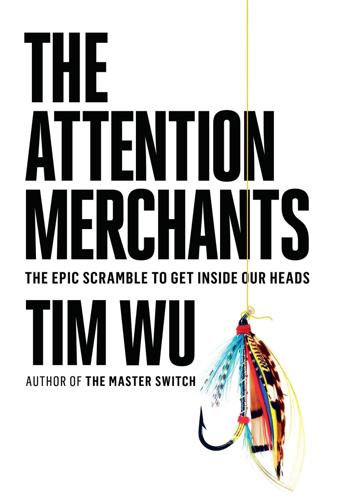
The Attention Merchants: The Epic Scramble to Get Inside Our Heads
by
Tim Wu
Published 14 May 2016
Martin Amis, Invasion of the Space Invaders (London: Hutchinson, 1982), 14; Glenn Collins, “Children’s Video Games: Who Wins (or Loses)?,” New York Times, August 31, 1981, http://www.nytimes.com/1981/08/31/style/children-s-video-games-who-wins-or-loses.html. 5. Kent, The Ultimate History of Video Games; Mihaly Csikszentmihalyi, “The Pursuit of Happiness: Bringing the Science of Happiness to Life,” accessed February 8, 2016, http://www.pursuit-of-happiness.org/history-of-happiness/mihaly-csikszentmihalyi/.; Amis, Invasion of the Space Invaders, 20; Mark O’Connell, “The Arcades Project: Martin Amis’ Guide to Classic Video Games,” The Millions, February 16, 2012, http://www.themillions.com/2012/02/the-arcades-project-martin-amis-guide-to-classic-video-games.html. 6.
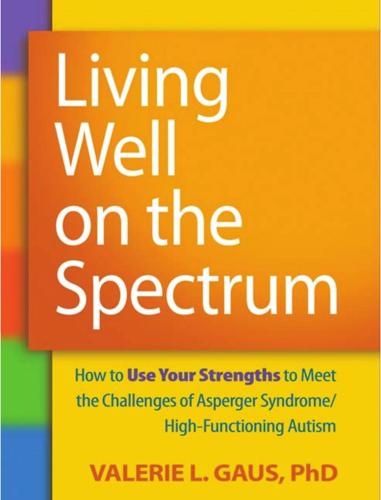
Living Well on the Spectrum
by
Valerie L. Gaus
Published 4 Feb 2011
If you do, you might not be completely satisfied with your job. Unfortunately, too many adults on the autism spectrum are unemployed or “underemployed,” which means working at jobs that don’t take advantage of their training, experience, or talent in a given field or specialty. Research in the science of happiness (subjective well-being) has repeatedly shown a strong correlation between job satisfaction and overall life satisfaction; that is, the higher one’s job satisfaction, the higher the overall satisfaction with life is likely to be and vice versa. So problems in this area of life are likely to be associated with poor quality of life in other areas as well.
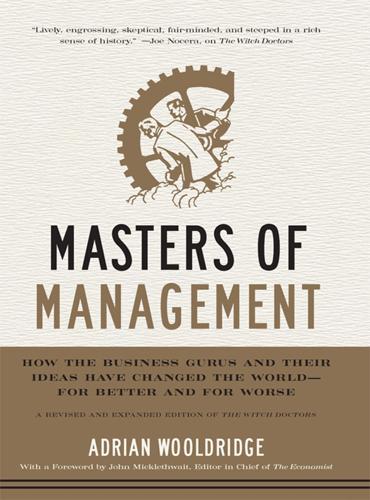
Masters of Management: How the Business Gurus and Their Ideas Have Changed the World—for Better and for Worse
by
Adrian Wooldridge
Published 29 Nov 2011
The company’s Web page features workers wearing cowboy hats and boasts that “crazy things happen every day … it’s pretty ridiculous.” Zappos, an online shoe and clothing shop, describes creating “fun and a little weirdness” as one of its core values. Tony Hsieh, the company’s boss, shaves his head, spends 10 percent of his time studying what he calls the “science of happiness,” and once joked that Zappos had issued a class action lawsuit against Walt Disney for describing itself as “the happiest place on earth.” The company practices regular “random acts of generosity,” when workers form a noisy conga line and single out one of their colleagues for praise. The praisee has to wear a hat for a week.
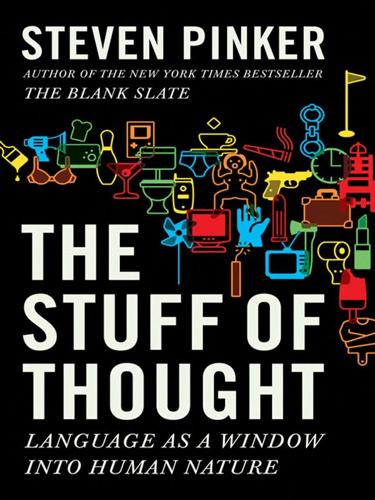
The Stuff of Thought: Language as a Window Into Human Nature
by
Steven Pinker
Published 10 Sep 2007
Eco, U. 1995. The search for the perfect language. Malden, Mass.: Blackwell. Etcoff, N. L. 1986. The neuropsychology of emotional expression. In G. Goldstein & R. E. Tarter (Eds.), Advances in clinical neuropsychology (Vol. 3). New York: Plenum. Etcoff, N. L. 2008. Liking, wanting, having, being: The science of happiness. New York: Farrar, Straus & Giroux. Everett, D. 2005. Cultural constraints On grammar and cognition in Pirahã: Another look at the design features Of human language. Current Anthropology, 46, 621—646. Fairhurst, G. T., & Sarr, R. A. 1996. The art of framing: Managing the language of leadership.
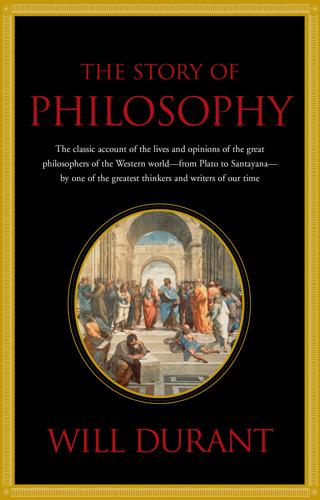
The Story of Philosophy
by
Will Durant
Published 23 Jul 2012
One would like to know more of what the maturer Schopenhauer thought of the brilliant philosophy of his youth. 162Anatole France (Voltaire’s last avatar) has dedicated one of his masterpieces—The Human Tragedy—to the task of showing that though “the joy of understanding is a sad joy,” yet “those who have once tasted it would not exchange it for all the frivolous gaieties and empty hopes of the vulgar herd.” Cf. The Garden of Epicurus, New York, 1908, p. 120. 163Finot, The Science of Happiness, New York, 1914, p. 70. 164Cf., again, Schopenhauer himself: “It is just this not seeking of one’s own things (which is everywhere the stamp of greatness) that gives to passionate love the touch of sublimity.”—III, 368. 165Essay on Women, p. 79. 166Cf. Schopenhauer: “The greatest intellectual capacities are only found in connection with a vehement and passionate will.”
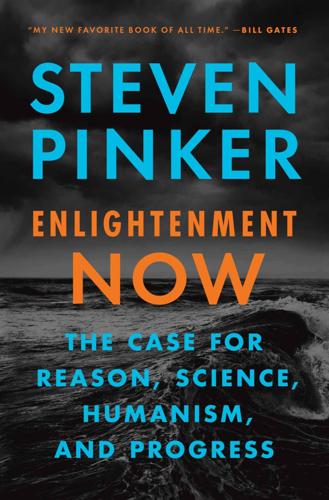
Enlightenment Now: The Case for Reason, Science, Humanism, and Progress
by
Steven Pinker
Published 13 Feb 2018
Social comparison theory: See chapter 9, note 11; Kelley & Evans 2016. 6. G. Monbiot, “Neoliberalism Is Creating Loneliness. That’s What’s Wrenching Society Apart,” The Guardian, Oct. 12, 2016. 7. Axial Age and origin of deepest questions: Goldstein 2013. Philosophy and history of happiness: Haidt 2006; Haybron 2013; McMahon 2006. Science of happiness: Gilbert 2006; Haidt 2006; Helliwell, Layard, & Sachs 2016; Layard 2005; Roser 2017. 8. Human capabilities: Nussbaum 2000, 2008; Sen 1987, 1999. 9. Choosing what doesn’t make you happy: Gilbert 2006. 10. Freedom makes people happy: Helliwell, Layard, & Sachs 2016; Inglehart et al. 2008. 11.